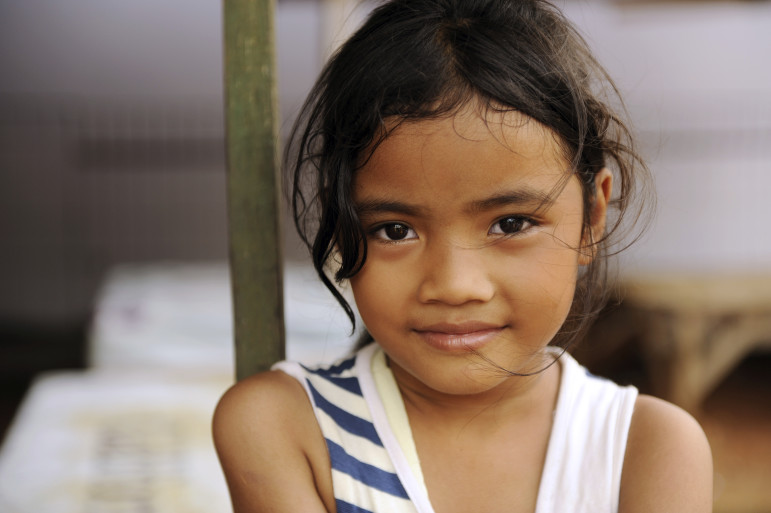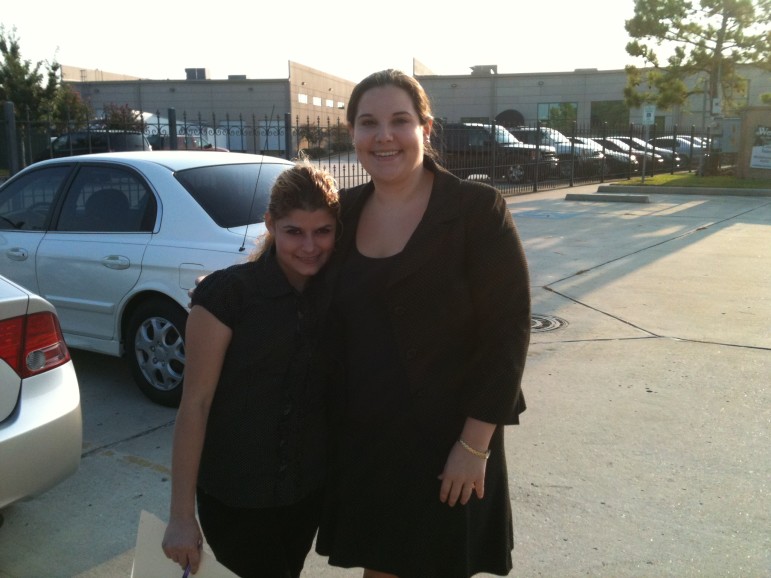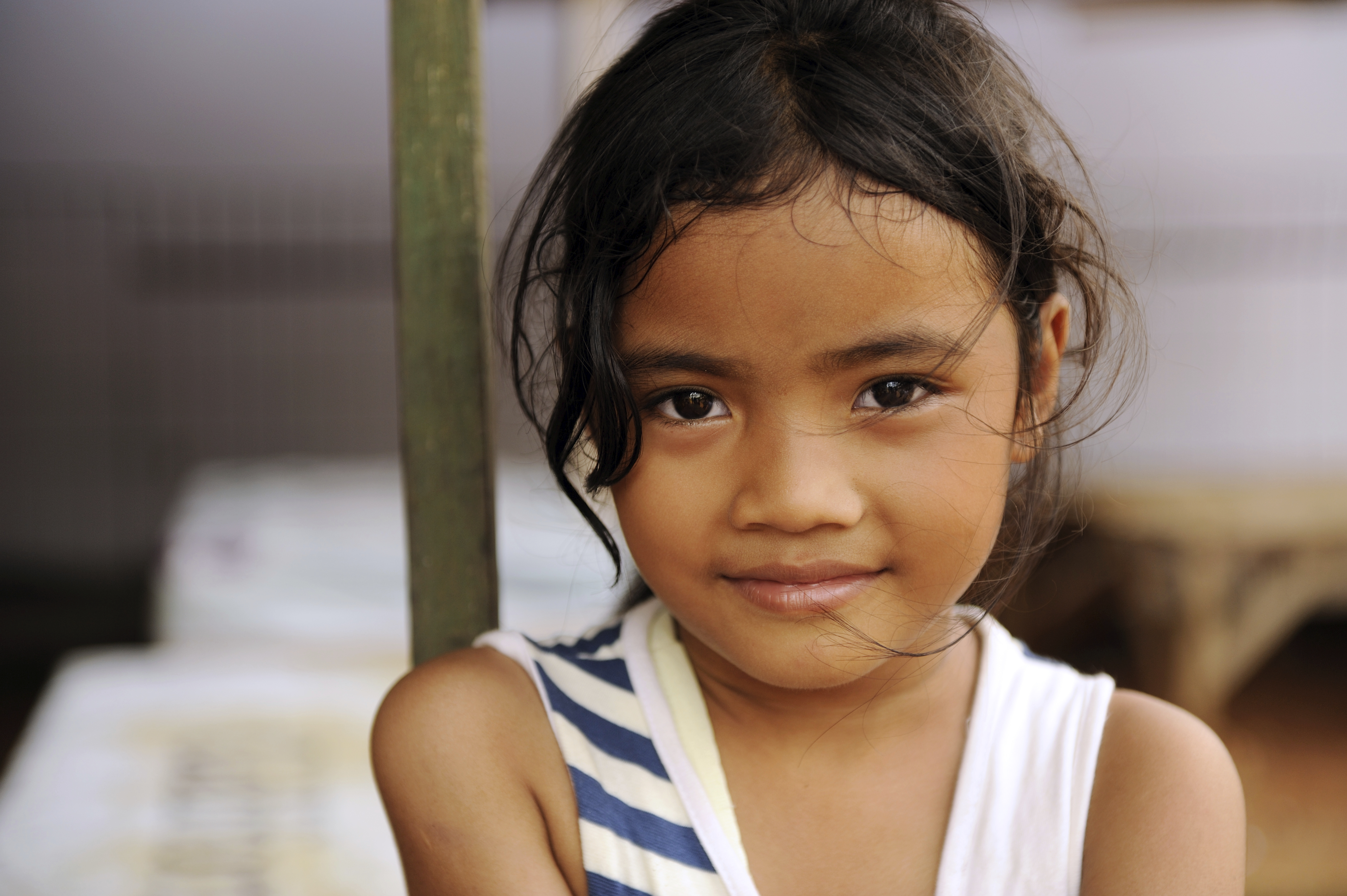
KIND
Youth cited violence as the primary reason for leaving Central America, according to a researcher who interviewed Salvadoran kids who had come to the United States and been deported.
Young people coming from Central America and crossing the southwest border into the United States are fleeing “staggering levels of violence,” said Shaina Aber, policy director of the Advocacy Office of the Jesuit Conference.
Last year, an article in the American Psychological Association’s publication Monitor on Psychology stressed the need for services to help them recover from trauma and deal with the uncertainties of their lives.
In June, the American Bar Association issued a call to action, saying legal representation for these young people is critical, since they routinely face deportation proceedings.
In El Salvador, the murder rate is up 70 percent, Aber said in a press conference in January.
In the Northern Triangle of Central America — Honduras, Guatemala and El Salvador — “organized crime has infiltrated the highest levels of government,” she said. Last year, 17,500 people were killed, numbers that are just behind the numbers in Syria, Iraq and Afghanistan, she said.
The situation in the Northern Triangle is “a refugee-producing conflict and needs to be treated as such,” she said.
After a huge surge in the summer of 2014, the number of unaccompanied minors crossing the Mexico border into the United States slowed. But last fall, number rose again. In October and November 10,588 kids came, twice as many as those months last year, and the number coming October through January jumped 171 percent compared to the prior year, according to U.S. Customs and Border Protection.
And the number of family members traveling together has tripled, according to the Associated Press.
KIND works to provide fair day in court
‘We’re concerned about the U.S. response,” said Megan McKenna, spokesperson for the nonprofit KIND, or Kids in Need of Defense. “The U.S. has not acknowledged that many of the children are potential refugees.”
KIND works with law firms to get pro-bono legal counsel for unaccompanied kids, who face court proceedings to determine if they may stay in the United States.

KIND
Kids coming alone from Central America to the United States should be treated as potential refugees, say the attorneys who volunteer to represent them. Here a pro bono attorney stands with her young client in Los Angeles.
McKenna said the process in the courts is not a fair one because more than half the children don’t have any legal representation, based on figures compiled by Syracuse University. U.S. law does not require that they have legal representation.
Kids who cross the border into the United States are in custody for about a month before a sponsor is found, McKenna said.
When they go to court, they need an attorney to help them explain why they came and make a case for staying.
Kids describe “horrific situations” that led them to leave, McKenna said. They describe a lawless environment, she said.
Lawlessness, poverty, family separation
Many of the 322 Salvadoran kids interviewed by social scientist Elizabeth G. Kennedy reported hearing gunshots nightly. Some lived in contested gang territory. One hundred said their school had gangs inside, and reported teachers and school directors occasionally helping to recruit kids into gangs.
When kids get to be a certain age they are targeted for recruitment into the gang, McKenna said. When they evade joining the gang, they and their family members may be threatened. Girls are sometimes sexually assaulted.
“There is no government protection,” she said. Gangs control whole communities, she said.
Government authorities are also implicated in killings, Aber said.
Based on her survey, Kennedy concluded that violence, extreme poverty and family reunification were the factors driving the youths to migrate. She found that 90 percent of the Salvadoran kids had a family member in the United States. Most cited violence as their primary reason for leaving, with one-third saying their primary reason was to rejoin a parent.
[Related: Aid Scarce for Immigrant Children in South Texas]
Refugee Transitions works with youth after school
Joyce Arellano-Bravo is the after-school program coordinator for the San Francisco nonprofit Refugee Transitions. The agency operates programs at two high schools that serve recent arrivals to the United States, San Francisco International High School and Oakland International High School.
“There are multiple needs,” Arellano-Bravo said.
“Sometimes students start to tell you about their journey,” she said. One 15-year-old girl who made the trip from Central America had stopped going to school in her home country, Arellano-Bravo said. “She was being pressured [by gangs] to choose sides.”
She stayed at home all day because going out was dangerous.
“She couldn’t live like that the rest of her life,” Arellano-Bravo said. She appealed to her uncle and other family members, who paid a smuggler to make travel arrangement to the United States, where she had other relatives.
Arellano-Bravo said her uncle came in the middle of the night, woke her and said: “Get some clothes and let’s go.”
She joined a group of other youngsters, including a teenage mother with a small child, and traveled through Mexico to the U.S. border, where the smuggler left them, saying they would run into immigration agents who would detain them and ultimately unite them with their relatives.
The group wandered for several days in the heat of the desert, running out of food and water.
They were eventually found by border agents, and the girl spent time in a detention center before being sent to relatives in San Francisco.
Safety, academics and enrichment
At San Francisco International High, the after-school program provides academic assistance, enrichment activities and a safe space for kids who may be living in extremely crowded conditions and who may now have to navigate gang-filled streets in their U.S. neighborhoods just to get to school.
The school had an enrollment of 328 students in January, about one-third of whom were unaccompanied minors. With a new wave of unaccompanied minors being settled in, the school got 29 new students in January, Arellano-Bravo said.
About 95 students ages 14 to 22 take part in the drop-in after-school program each day.
“Providing academic support is essential,” Arellano-Bravo said. Kids are trying to learn English and master their homework.
“They’re really trying,” she said. When they are able to show up in class with homework done, they have a sense of accomplishment.
Additional enrichment activities are also very important, she said. Clubs in the after-school program have ranged from yoga to skateboarding to disc jockeying. “You learn English by doing,” she said. Volunteer tutors provide crucial help. “They are a link to American culture,” Arellano-Bravo said.
The youth coming from Central America may not actually know many English-speaking Americans, she said.
“A lot of them have suffered a lot of trauma … in their home country and on their way here,” she said.
When they arrive, they may be faced with family tensions they didn’t expect.
“It’s a very difficult transition for them,” Arellano-Bravo said. “All of a sudden they’re reunited [after years of separation],” she said.
“Parents try to act like parents to teens,” but they don’t really know each other.
In addition, some students live 10 in a room with other people, she said. Multiple families rent one apartment.
“I’ve heard of people renting a closet [to live in],” Arellano-Bravo said.
Another issue is the vulnerability of kids who are new to the country.
“They are the ideal target for gangs,” she said. They don’t speak English and “they don’t have a community.”
One way the after-school program addresses this is through the club Teen Promotores (promoters). The club helps its members become expert in issues of importance to the Latin American community in San Francisco. The teens then go out in the community armed with information and educate others. For example, the students learned about telephone fraud and then educated others in the community. They also learned crucial information about new immigration laws.
Refugee Transitions also provides a home-based tutoring program. Kids also have access to health care and counseling through a wellness clinic at San Francisco International High.
A network of services is important, Arellano-Bravo said.
More related articles:
Across the Border & Underage: A Look at Sexual Exploitation of Immigrant Children
What Awaits Unaccompanied Minors in New York
Keep Legal Protections for Kids Crossing Border, Rights Groups Say




























